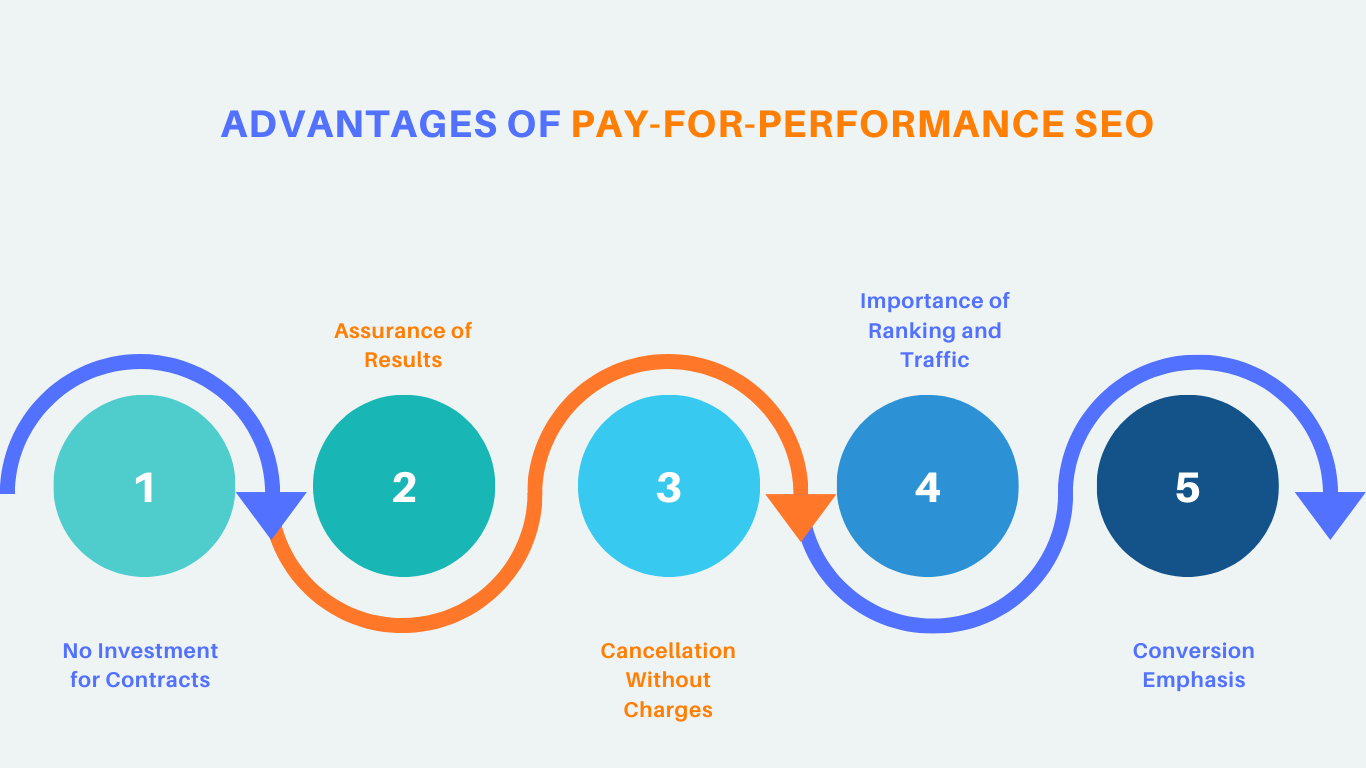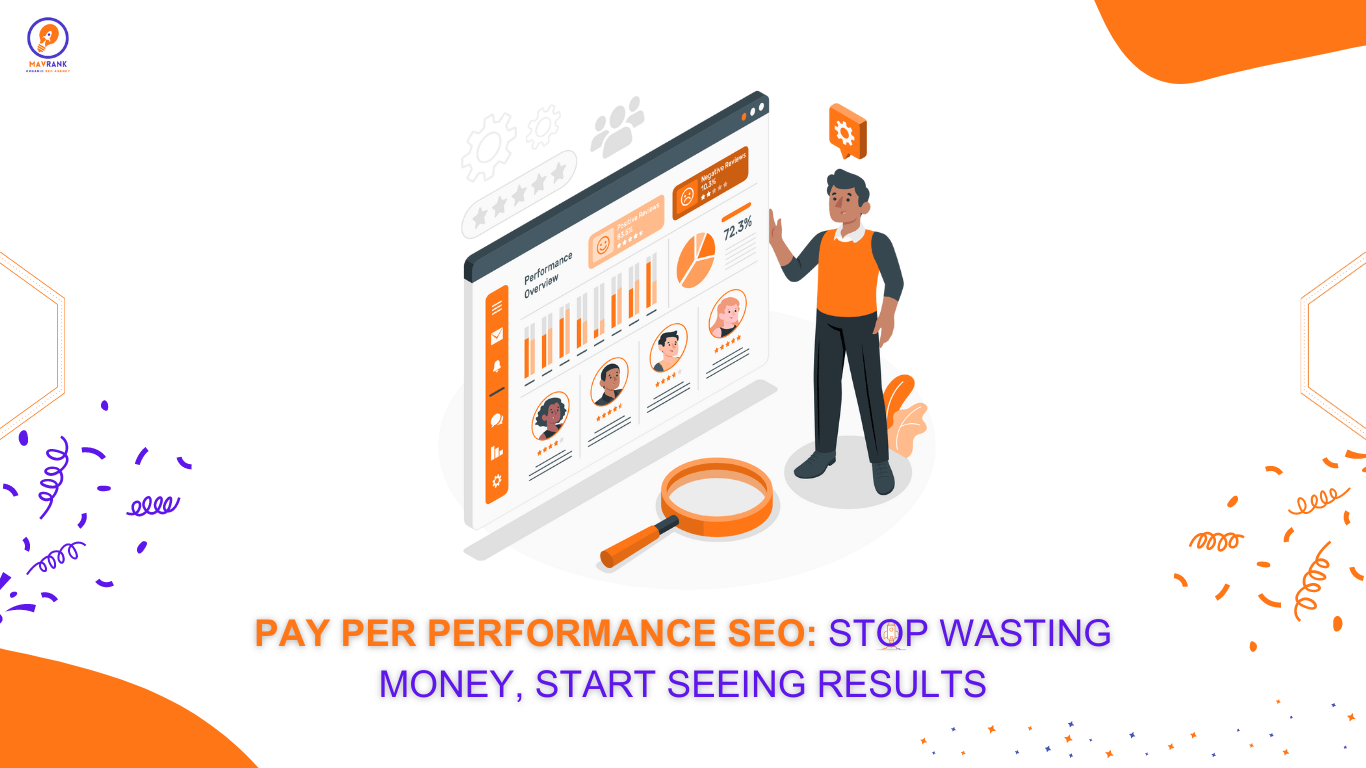- July 15, 2024
- by Admin
- SEO
- 0 Comments
If you are in search of an SEO company to assist you in making your website rank well in the search engine results, then you will realize that have come across many plans on how some of these companies charge their clients; pay for performance SEO being one of them.
Search engine optimization or SEO can be described in many ways, but coming down to it, it is a complex process in the sphere of digital marketing. Well, what are we to think about SEO firms that claim to offer a pay-for-performance fee structure? In most cases, you may come across an agency with a pay-for-results SEO; in this case, it is good to learn about their mode of operation and how it will affect your company’s SEO in the future.
What is Pay-per-performance SEO?
Performance-based SEO or pay-per-performance SEO, or pay-for-results SEO is a pricing model of SEO services whereby, the SEO company only gets paid once they have delivered the results. These results usually relate to the improvement of certain selected keywords or an increase in site visits.
The primary reason why businesses should consider using them is that it is paid based on the results obtained only. This is desirable in comparison with other SEO business models when you pay a certain amount of money entered and do not expect any results.
Unlike the conventional SEO where you make payments before the results, PPP will compel the SEO agency to work harder to record useful results.
It is generally worked in a way that depends on a particular performance which is usually associated with increased keyword ranking, organic traffic, or conversion rate. This method benefits the client because it aligns the objectives of the SEO agency intending to make economic sense, therefore, the agency would need to ensure that, it offers tangible value to the client.
Pay-per-performance SEO VS. traditional SEO pricing model
Pay-per-performance SEO and traditional SEO price models refer to two different methods of remunerating the SEO services.
Usually, Traditional SEO Pricing is charged per month or on a retainer basis where the entire SEO services are bundled together into one price. In any case, the result attained the client agrees to pay a certain amount of money as agreed. It can provide a sort of security to the SEO agency so that they can invest back in their people and tools. But perhaps its primary drawback is that it can turn the agency into a separate body whose performance may not necessarily correlate with the client’s satisfaction.
On the other hand, a pay-per-performance SEO system works according to the achievement of certain performance indicators. Such KPIs may include better positions of the established keywords, more visitors from search engines, uplifted conversion, or any combination of these results. The payment structure presents an idea that is positive for SEO agencies because of the strong motivation to perform optimally.
Pros of Pay-per-performance SEO
Let’s dive into the details of each advantage of pay-for-performance SEO:

-
No Investment for Contracts:
A major advantage of pay-for-performance SEO is that this type of cooperation can be realized without signing a contract for years. It significantly differs from other forms of advertising; thus, the businesses interested can join without investing a large sum of money. Clients are only charged after the set goals have been met; goals such as higher ranking and increased traffic. Favorable to low-cost firms and agencies, this flexibility demands the delivery of results effectively.
-
Assurance of Results:
This is a good strategy that puts the agency’s interest in harmony with that of the client. Organizations prefer ways, which will enable them to realize certain tangible results. The motivation to perform ensures that set strategies bear the intended results and suit the client’s needs best. Concerning transparency and accountability, this model is at the core.
-
Cancellation Without Charges:
Performance-based SEO services do not tie the client into any contract in the same way that other contracts will, and they can opt-out at any time they wish. If results are not achieved or the goals of the company shift, the clients may make modifications. This is a great benefit, especially given the way steady changes are made to the schedule of international activities.
-
Importance of Ranking and Traffic:
PFP is used with precise goals and KPIs like increasing the keyword’s rank or attracting quality traffic. The goals you mentioned are often optimized by SEO agencies. This helps in achieving the necessary results focusing on the quality rather than the quantity. The approach makes it possible for organizational initiatives to address inherent and existing business issues.
-
Conversion Emphasis:
Performance-based SEO generally encourages the client to set goals focused on conversions. For instance, sales, and sign-ups and not the amount of traffic per se. It is better to have good traffic that converts to customers instead of the large traffic that does not convert. Instead, agencies try to estimate and focus on achieving significant actions based on users’ behavior.
Cons of Pay-per-performance SEO:
Pay-per-performance SEO is quite attractive because you only pay when the job is done and the leads are generated. However, there are some drawbacks to consider:
-
Short-term focus:
Pay-for-performance SEO can encourage short-term thinking over the long haul. This might lead to strategies that are counter-productive for your site in the long term such as using poor-quality backlinks or keyword spamming.
-
Black hat SEO:
One of the major concerns is unethical approaches to website promotion referred to as Black Hat SEO. It could be quite appealing for PFP agencies, as they require little time to demonstrate real results. Many of them can lead to penalties by search engines on your site.
-
Vanity metrics:
It may well be driven by figures that have no real relevance to what the business aims to achieve. For instance, they might work so hard to achieve higher rankings for phrases that few people search for or they optimize for traffic that is not likely to buy something.
-
Limited scope:
While utilizing PFP SEO, the website might completely overlook some aspects of SEO such as technical SEO or user experience because of a perceived slower impact on ranking factors.
-
Deceptive promises:
Do not trust agencies that assure you they will provide great and magical results in several weeks. It has been said before that working for an SEO rank is a marathon, not a sprint, hence it will require time to build a good ranking.
Alternatives to PFP SEO:
Here are some alternatives to pay-per-performance SEO (PFP SEO) that offer more control and potentially better long-term results:
Fixed Fee Models:
- Monthly Retainer:
This offers the commoner an expectation of the amount they will spend and within which they will operate. It is expensive and you pay a fixed price for SEO services, which are provided monthly. It will promote the formation of good working relationships as the agency and your company benefit from each other’s success.
- Project-Based Fee:
This is perfect for certain, narrow SEO jobs like technical SEO scan or on-site SEO for a set of pages. It is a one-time payment for an already worked-on and finished project. Hence affording a clear return on your investment.
Hybrid Models:
- Retainer with Performance Incentives:
This is a model making use of an initial fixed fee in addition to other fees based on the specific SEO results that have been agreed on. Such targets may include getting to the top rank for high-value keywords or raising the organic traffic rate. It encourages the agency to work in achieving the directed goals as well as establishing basic quality standards.
In-House SEO:
- Building an internal SEO team:
This allows you to have more control over your SEO management and fate. This enables you to plan according to your particular preferences and business needs. However, for them to deliver the results it has to involve paying qualified SEO professionals, which may not be cheap.
Conclusion
It is therefore clear that pay-for-performance SEO is appealing especially for any business entity that is interested in tangible results of the money it has spent on search engine optimization. Since it is based on easily measurable goals, the model represents the values of both clients and SEO agencies – productivity. The fact that it expects a calmer business prospect and potential cost savings. This will Eliminate upfront risks and make it feasible for most investors.
Finally, it is significant to state that the efficiency of pay-per-performance SEO strongly depends upon the qualifications and the handling of the selected SEO agency. Companies need to enforce critical control in selecting partners. This will avoid the risk of working with a company that will not meet agreed-upon goals. Subsequently, different approaches can be judged by the advantages and disadvantages and the right choice made to improve solidity and actual growth for businesses online.



